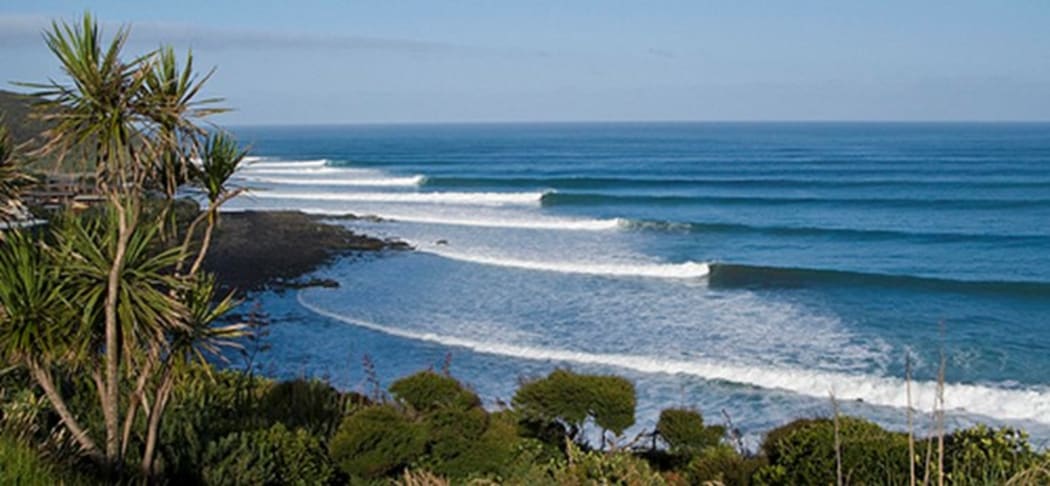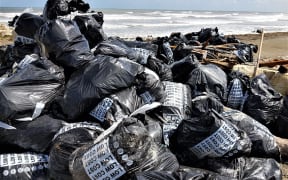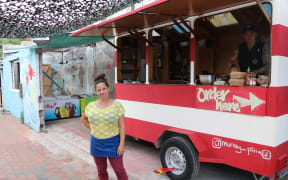US plastic experts have discovered hundreds of tiny pieces of plastic in just a few square metres while carrying out a survey on a Raglan beach.

Raglan surf break Photo: Hamilton and Waikato Tourism
Staff from the 5 Gyers Institute - an international organisation working to reduce plastic pollution - are in New Zealand for the PURE Tour, a month-long event looking at plastic problems and solutions.
The institutes' co-founder, Anna Cummins, said while it was early days in the tour, there had been much more plastic than expected in some areas - including a relatively secluded Raglan beach.
"It looked like a very clean beach, some locals told me 'don't bother you won't find anything', it's really when you get down on your hands and knees, move aside some of the natural debris that you see what we're talking about.
"It was filled with small particles of plastic, with preproduction pellets that we call nurdles, so there was quite a bit in this one small area of Raglan that looked for all intents and purposes like quite a clean beach," Ms Cummins said.
She said New Zealand was not as clean and green as it could be and needed better ways of managing plastic waste.
"Some of the research that we have been sharing here about plastics [shows it's] getting into the food chain, into the bodies of fish and shellfish."
Ms Cummins said there was also evidence of micro-plastics in consumer products - "everything from sea-salt to beer, to honey, to drinking water".
5 Gyres Institute research director Marcus Eriksen said while there were some great intiatives underway in New Zealand, single-use plastics were still causing a lot of problems.
He said using plastics that were designed to last forever only once was nonsensical.
Dr Eriksen and Ms Cummins will be joining iwi leaders and Greenpeace next week to hand over a petition to Parliament calling for a ban on single use plastic bags.
The petition has 60,000 signatures.
Ms Cummins said a plastic bag ban was low-hanging fruit in dealing with the problem, as it helped reduce waste and raise awareness.
The ban is supported by the heads of both the Foodstuffs and Countdown supermarket chains - they have already vowed to stop using plastic bags at their stores by the end of the year.
In the meantime about 100 million bags will be used.
Countdown's general manager of corporate affairs, Kiri Hannifin, said that was because they needed to get their systems in place for their checkout and operations, as well as ensuring they used the most environmentally-sustainable alternative.
She said they were also looking at reducing packaging around produce - including whether cucumbers needed to be plastic wrapped.
"With cucumbers, the plastic I believe is put around it to give it good life because they bruise very easily... we are looking at what else we can do."
Foodstuffs business leader Chris Quinn said it was a similar situation with fruit and vegetables in their stores.
"The journey to get where we are and to get to as plastic-free as we can is to examine every one of those."
Associate Environment Minister Eugenie Sage has launched a review of New Zealand's waste manage act, the environmental harm caused by products and regulations to manage them, including bans or levies.
Details around the review's scope and timeline are expected to be released in the next few months.




